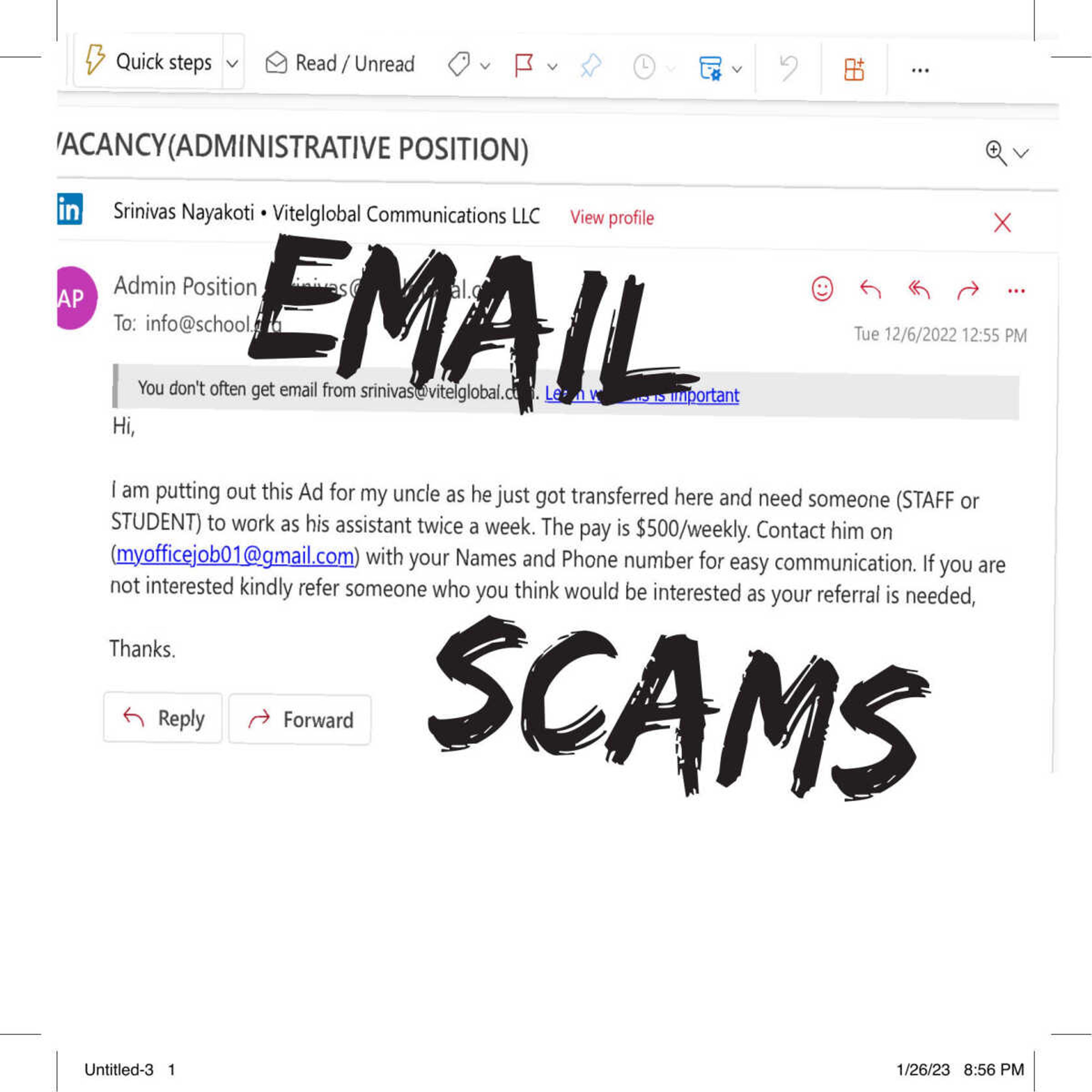Have you gotten one of those sketchy emails claiming this great job offer was available, but in truth, you felt something wasn’t quite right about it?
I received one of those emails and was offered $300 to walk what I thought was a student’s dog for one hour three times a week. Who wouldn’t want to jump on an offer like that?! I clicked the link, and yes, since I am of a “certain” age. I should have known better, but I was intrigued.
I knew right away I had been duped. There was no dog, no walking and certainly no $300!
The link in the email sent me to a page where they asked for my mother’s maiden name, my social security number and date of birth. I knew then it was not a legitimate offer because of the personal information they requested.
Scams have now started showing up more frequently in our SEMO student emails. Job offers like, “I need someone to walk my dog three days a week for $300” , “My uncle just got transferred to the area and is looking for an assistant for $500 weekly” or “My dad just had surgery and needs someone to run errands for him for $600 weekly” are just a few scams seen in emails.
Unfortunately, students have the potential to fall prey to these types of scams, despite SEMO’s IT security team working around the clock to try to protect their information.
Information technology security officer Bill Green said even with all of the technology to stop the scammers at SEMO, sometimes, it isn’t enough.
“Scammers are just getting better and better at disguising who they are,” Green said. “You might get something from the bank and it looks legit, but it ends up being some scam trying to take your money.”
Another way scammers deceive students includes convincing them they have a package from UPS, but it will cost them to have it sent directly to their address.
“Students get this email or even a text message saying they’ve won a prize, there’s a package waiting for them, or even this great job offer, and they are not thinking this could be something fishy,” Green said. “They are tired, stressed out from school, so they click the link, and before they can react, scammers have gotten all they need.”
Green said if you think the email may be a true job offer, then ask to meet with the party at a public place. If the person balks at the idea, then chances are it was a scam and their true intent was exposed.
Green said unfortunately, some students do fall for the scam and end up giving out credit card numbers, bank account numbers and other personal information.
“First thing students do is panic, and that’s understandable. What they need to do is immediately contact their bank and credit card companies,” Green said. “They may also need to run credit reports from the three reporting agencies to see if there are any new inquiries or discrepancies on their credit report.”
If you have been a victim of a scam, another step in fixing the situation is to report it to the Federal Trade Commission and give them as much information as you can. Green also wants students to forward him the emails when they show up in their inbox.
“The only way to stay on top of the scams is to keep reporting and keep reporting,” Green said. “If you are getting it, so are thousands of others.”
Remember, if it seems too good to be true, do not open it; delete it.
To report any suspicious emails or scams, email information security officer Bill Green at bgreen@semo.edu.








